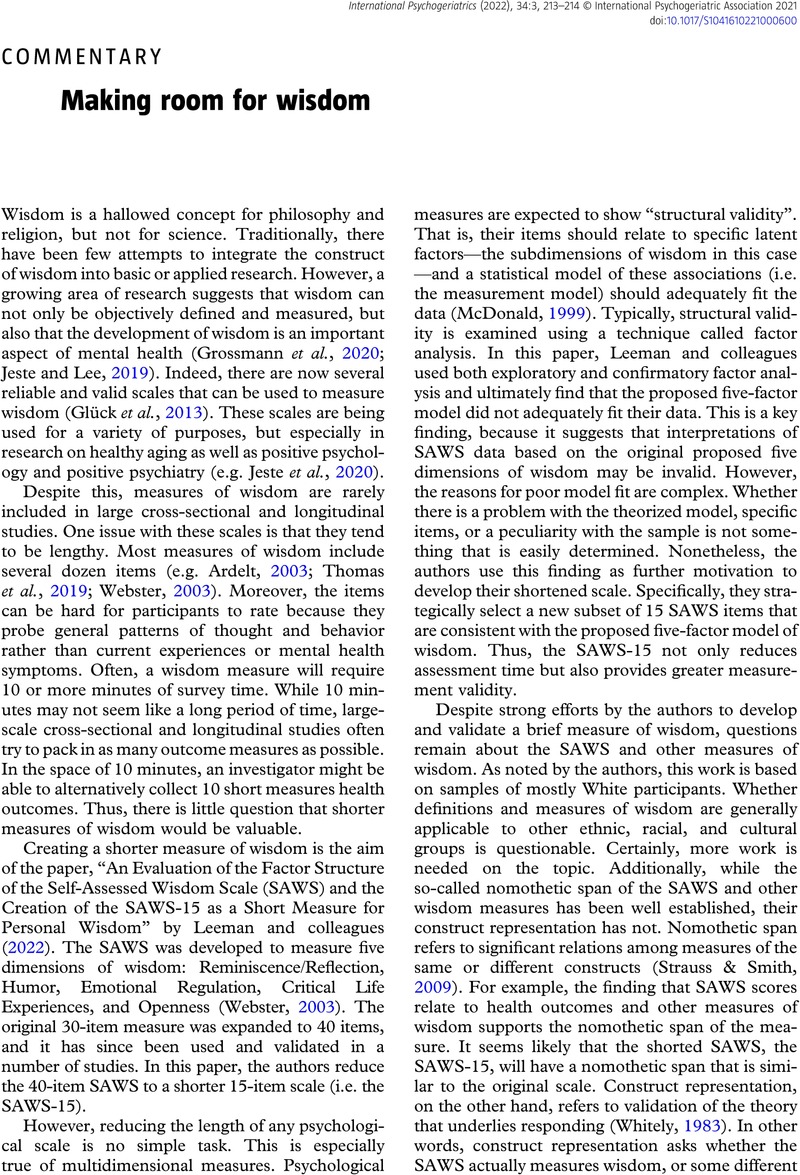Crossref Citations
This article has been cited by the following publications. This list is generated based on data provided by Crossref.
Hu, Chao S.
and
Glassman, Harley
2022.
Distinguishing between wisdom and wisdom-related psychological constructs for a parsimonious model of wisdom.
International Psychogeriatrics,
Vol. 34,
Issue. 7,
p.
597.



